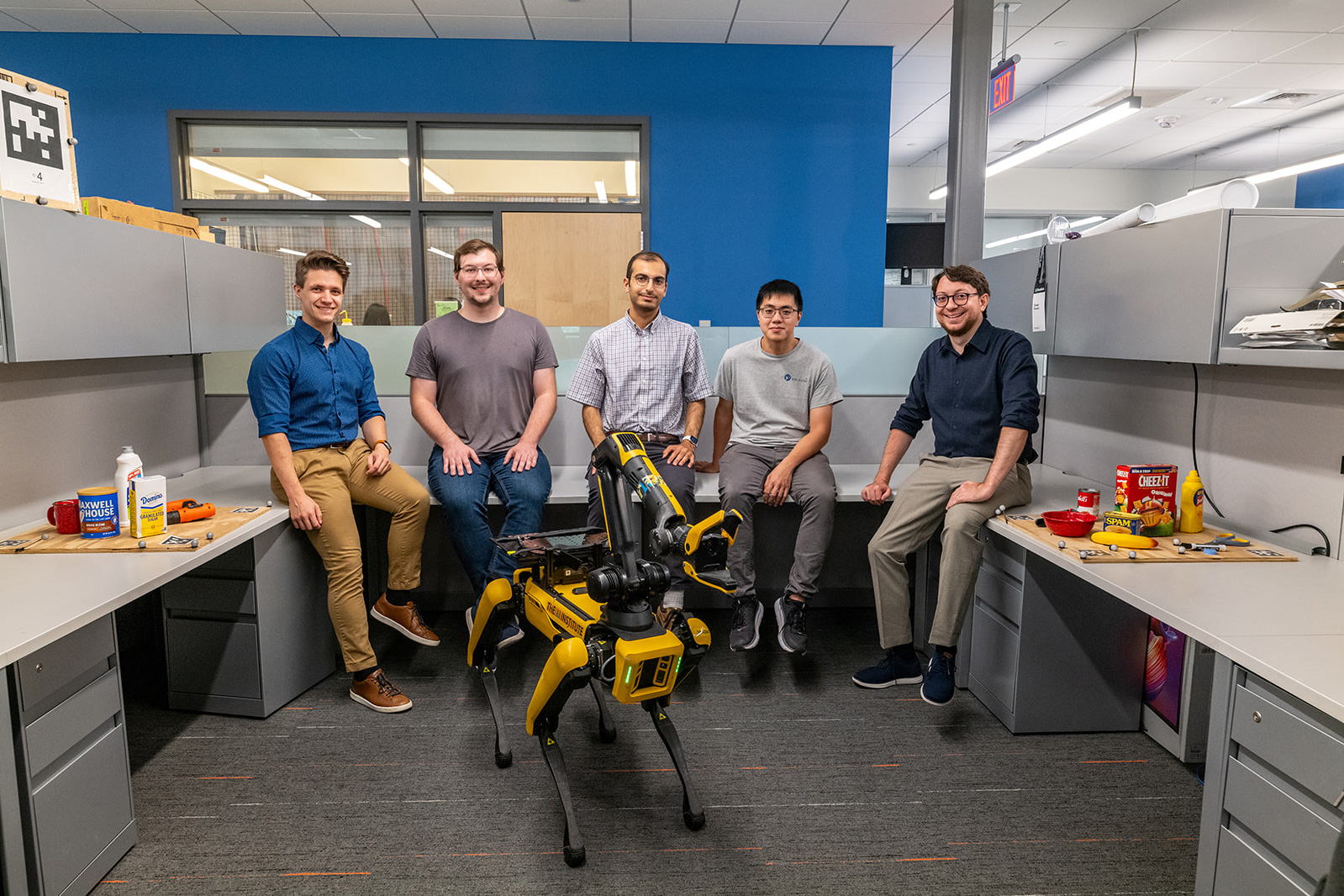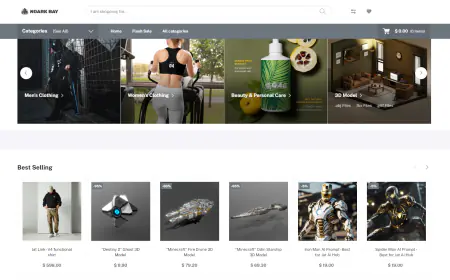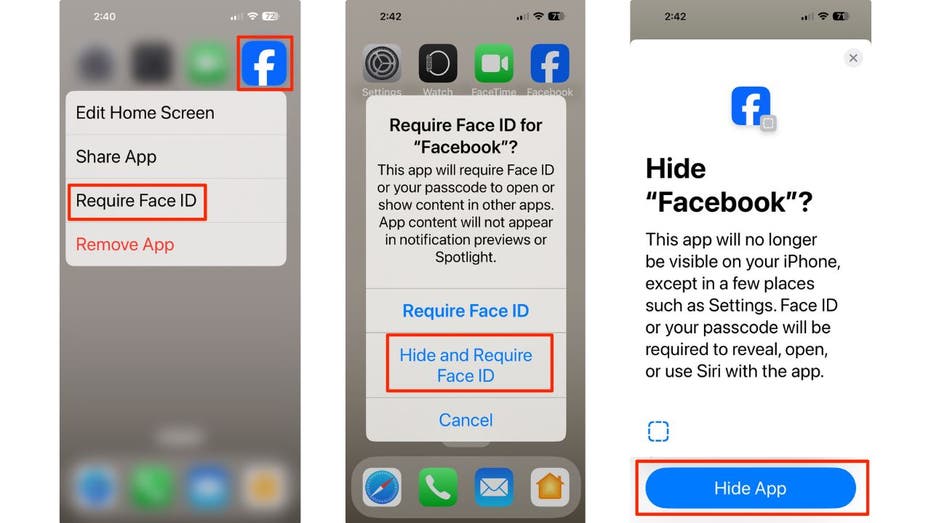How Kepler democratized AI access and enhanced client services with Amazon Q Business
At Kepler, a global full-service digital marketing agency serving Fortune 500 brands, we understand the delicate balance between creative marketing strategies and data-driven precision. In this post, we share how implementing Amazon Q Business transformed our operations by democratizing AI access across our organization while maintaining stringent security standards, resulting in an average savings of 2.7 hours per week per employee in manual work and improved client service delivery.

This is a guest post co-authored by Evan Miller, Noah Kershaw, and Valerie Renda of Kepler Group
At Kepler, a global full-service digital marketing agency serving Fortune 500 brands, we understand the delicate balance between creative marketing strategies and data-driven precision. Our company name draws inspiration from the visionary astronomer Johannes Kepler, reflecting our commitment to bringing clarity to complex challenges and illuminating the path forward for our clients.
In this post, we share how implementing Amazon Q Business transformed our operations by democratizing AI access across our organization while maintaining stringent security standards, resulting in an average savings of 2.7 hours per week per employee in manual work and improved client service delivery.
The challenge: Balancing innovation with security
As a digital marketing agency working with Fortune 500 clients, we faced increasing pressure to use AI capabilities while making sure that we maintain the highest levels of data security. Our previous solution lacked essential features, which led team members to consider more generic solutions. Specifically, the original implementation was missing critical capabilities such as chat history functionality, preventing users from accessing or referencing their prior conversations. This absence of conversation context meant users had to repeatedly provide background information in each interaction. Additionally, the solution had no file upload capabilities, limiting users to text-only interactions. These limitations resulted in a basic AI experience where users often had to compromise by rewriting prompts, manually maintaining context, and working around the inability to process different file formats. The restricted functionality ultimately pushed teams to explore alternative solutions that could better meet their comprehensive needs. Being an International Organization for Standardization (ISO) 27001-certified organization, we needed an enterprise-grade solution that would meet our strict security requirements without compromising on functionality. Our ISO 27001 certification mandates rigorous security controls, which meant that public AI tools weren’t suitable for our needs. We required a solution that could be implemented within our secure environment while maintaining full compliance with our stringent security protocols.
Why we chose Amazon Q Business
Our decision to implement Amazon Q Business was driven by three key factors that aligned perfectly with our needs. First, because our Kepler Intelligence Platform (Kip) infrastructure already resided on Amazon Web Services (AWS), the integration process was seamless. Our Amazon Q Business implementation uses three core connectors (Amazon Simple Storage Service (Amazon S3), Google Drive, and Amazon Athena), though our wider data ecosystem includes 35–45 different platform integrations, primarily flowing through Amazon S3. Second, the commitment from Amazon Q Business to not use our data for model training satisfied our essential security requirements. Finally, the Amazon Q Business apps functionality enabled us to develop no-code solutions for everyday challenges, democratizing access to efficient workflows without requiring additional software developers.
Implementation journey
We began our Amazon Q Business implementation journey in early 2025 with a focused pilot group of 10 participants, expanding to 100 users in February and March, with plans for a full deployment reaching 500+ employees. During this period, we organized an AI-focused hackathon that catalyzed organic adoption and sparked creative solutions. The implementation was unique in how we integrated Amazon Q Business into our existing Kepler Intelligence Platform, rebranding it as Kip AI to maintain consistency with our internal systems.
Kip AI demonstrates how we’ve comprehensively integrated AI capabilities with our existing data infrastructure. We use multiple data sources, including Amazon S3 for our storage needs, Amazon QuickSight for our business intelligence requirements, and Google Drive for team collaboration. At the heart of our system is our custom extract, transform, and load ETL pipeline (Kip SSoT), which we’ve designed to feed data into QuickSight for AI-enabled analytics. We’ve configured Amazon Q Business to seamlessly connect with these data sources, allowing our team members to access insights through both a web interface and browser extension. The following figure shows the architecture of Kip AI.

This integrated approach helps ensure that Kepler’s employees can securely access AI capabilities while maintaining data governance and security requirements crucial for their clients. Access to the platform is secured through AWS Identity and Access Management (IAM), connected to our single sign-on provider, ensuring that only authorized personnel can use the system. This careful approach to security and access management has been crucial in maintaining our clients’ trust while rolling out AI capabilities across our organization.
Transformative use cases and results
The implementation of Amazon Q Business has revolutionized several key areas of our operations. Our request for information (RFI) response process, which traditionally consumed significant time and resources, has been streamlined dramatically. Teams now report saving over 10 hours per RFI response, allowing us to pursue more business opportunities efficiently.

Client communications have also seen substantial improvements. The platform helps us draft clear, consistent, and timely communications, from routine emails to comprehensive status reports and presentations. This enhancement in communication quality has strengthened our client relationships and improved service delivery.


Perhaps most significantly, we’ve achieved remarkable efficiency gains across the organization. Our employees report saving an average of 2.7 hours per week in manual work, with user satisfaction rates exceeding 87%. The platform has enabled us to standardize our approach to insight generation, ensuring consistent, high-quality service delivery across all client accounts.

Looking ahead
As we expand Amazon Q Business access to all Kepler employees (over 500) in the coming months, we’re maintaining a thoughtful approach to deployment. We recognize that some clients have specific requirements regarding AI usage, and we’re carefully balancing innovation with client preferences. This strategic approach includes working to update client contracts and helping clients become more comfortable with AI integration while respecting their current guidelines.
Conclusion
Our experience with Amazon Q Business demonstrates how enterprise-grade AI can be successfully implemented while maintaining strict security standards and respecting client preferences. The platform has not only improved our operational efficiency but has also enhanced our ability to deliver consistent, high-quality service to our clients. What’s particularly impressive is the platform’s rapid deployment capabilities—we were able to implement the solution within weeks, without any coding requirements, and eliminate ongoing model maintenance and data source management expenses. As we continue to expand our use of Amazon Q Business, we’re excited about the potential for further innovation and efficiency gains in our digital marketing services.
About the authors
 Evan Miller, Global Head of Product and Data Science, is a strategic product leader who joined Kepler 2013. Currently serving as Global Head of Product and Data Science, he owns the end-to-end product strategy for the Kepler Intelligence Platform (Kip). Under his leadership, Kip has garnered industry recognition, winning awards for Best Performance Management Solution and Best Commerce Technology, while driving significant business impact through innovative features like automated Machine Learning analytics and Marketing Mix Modeling technology.
Evan Miller, Global Head of Product and Data Science, is a strategic product leader who joined Kepler 2013. Currently serving as Global Head of Product and Data Science, he owns the end-to-end product strategy for the Kepler Intelligence Platform (Kip). Under his leadership, Kip has garnered industry recognition, winning awards for Best Performance Management Solution and Best Commerce Technology, while driving significant business impact through innovative features like automated Machine Learning analytics and Marketing Mix Modeling technology.
 Noah Kershaw leads the product team at Kepler Group, a global digital marketing agency that helps brands connect with their audiences through data-driven strategies. With a passion for innovation, Noah has been at the forefront of integrating AI solutions to enhance client services and streamline operations. His collaborative approach and enthusiasm for leveraging technology have been key in bringing Kepler’s “Future in Focus” vision to life, helping Kepler and its clients navigate the modern era of marketing with clarity and precision.
Noah Kershaw leads the product team at Kepler Group, a global digital marketing agency that helps brands connect with their audiences through data-driven strategies. With a passion for innovation, Noah has been at the forefront of integrating AI solutions to enhance client services and streamline operations. His collaborative approach and enthusiasm for leveraging technology have been key in bringing Kepler’s “Future in Focus” vision to life, helping Kepler and its clients navigate the modern era of marketing with clarity and precision.
 Valerie Renda, Director of Data Strategy & Analytics, has a specialized focus on data strategy, analytics, and marketing systems strategy within digital marketing, a field she’s worked in for over eight years. At Kepler, she has made significant contributions to various clients’ data management and martech strategies. She has been instrumental in leading data infrastructure projects, including customer data platform implementations, business intelligence visualization implementations, server-side tracking, martech consolidation, tag migrations, and more. She has also led the development of workflow tools to automate data processes and streamline ad operations to improve internal organizational processes.
Valerie Renda, Director of Data Strategy & Analytics, has a specialized focus on data strategy, analytics, and marketing systems strategy within digital marketing, a field she’s worked in for over eight years. At Kepler, she has made significant contributions to various clients’ data management and martech strategies. She has been instrumental in leading data infrastructure projects, including customer data platform implementations, business intelligence visualization implementations, server-side tracking, martech consolidation, tag migrations, and more. She has also led the development of workflow tools to automate data processes and streamline ad operations to improve internal organizational processes.
 Al Destefano is a Sr. Generative AI Specialist on the Amazon Q GTM team based in New York City. At AWS, he uses technical knowledge and business experience to communicate the tangible enterprise benefits when using managed Generative AI AWS services.
Al Destefano is a Sr. Generative AI Specialist on the Amazon Q GTM team based in New York City. At AWS, he uses technical knowledge and business experience to communicate the tangible enterprise benefits when using managed Generative AI AWS services.
 Sunanda Patel is a Senior Account Manager with over 15 years of expertise in management consulting and IT sectors, with a focus on business development and people management. Throughout her career, Sunanda has successfully managed diverse client relationships, ranging from non-profit to corporate and large multinational enterprises. Sunanda joined AWS in 2022 as an Account Manager for the Manhattan Commercial sector and now works with strategic commercial accounts, helping them grow in their cloud journey to achieve complex business goals.
Sunanda Patel is a Senior Account Manager with over 15 years of expertise in management consulting and IT sectors, with a focus on business development and people management. Throughout her career, Sunanda has successfully managed diverse client relationships, ranging from non-profit to corporate and large multinational enterprises. Sunanda joined AWS in 2022 as an Account Manager for the Manhattan Commercial sector and now works with strategic commercial accounts, helping them grow in their cloud journey to achieve complex business goals.
 Kumar Karra is a Sr. Solutions Architect at AWS supporting SMBs. He is an experienced engineer with deep experience in the software development lifecycle. Kumar looks to solve challenging problems by applying technical, leadership, and business skills. He holds a Master’s Degree in Computer Science and Machine Learning from Georgia Institute of Technology and is based in New York (US).
Kumar Karra is a Sr. Solutions Architect at AWS supporting SMBs. He is an experienced engineer with deep experience in the software development lifecycle. Kumar looks to solve challenging problems by applying technical, leadership, and business skills. He holds a Master’s Degree in Computer Science and Machine Learning from Georgia Institute of Technology and is based in New York (US).



















![[PRO Tips] Use the BCG matrix to help you analyze the current situation, product positioning, and formulate strategies](https://i.scdn.co/image/ab6765630000ba8a165b48c48c4321b36a1df7b9?#)
![[Business Talk] BYD's Hiring Standards: A Reflection of China's Competitive Job Market](https://i.scdn.co/image/ab6765630000ba8a1a1e0af3aefae3a685793e7c?#)
![[PRO Tips] What is ESG? How is it different from CSR and SDGs? 3 keywords that companies and investors should know](https://i.scdn.co/image/ab6765630000ba8a76dbe129993a62e85226c2b4?#)
![[Business Talk] Elon Musk](https://i.scdn.co/image/ab6765630000ba8ac91eb094519def31d2b67898?#)


















